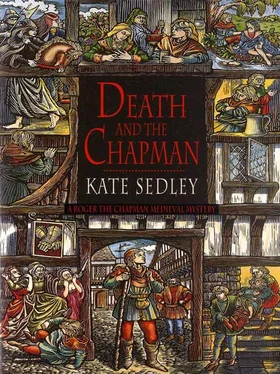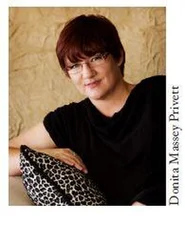Kate Sedley - Death and the Chapman
Здесь есть возможность читать онлайн «Kate Sedley - Death and the Chapman» весь текст электронной книги совершенно бесплатно (целиком полную версию без сокращений). В некоторых случаях можно слушать аудио, скачать через торрент в формате fb2 и присутствует краткое содержание. Жанр: Исторический детектив, на английском языке. Описание произведения, (предисловие) а так же отзывы посетителей доступны на портале библиотеки ЛибКат.
- Название:Death and the Chapman
- Автор:
- Жанр:
- Год:неизвестен
- ISBN:нет данных
- Рейтинг книги:4 / 5. Голосов: 1
-
Избранное:Добавить в избранное
- Отзывы:
-
Ваша оценка:
- 80
- 1
- 2
- 3
- 4
- 5
Death and the Chapman: краткое содержание, описание и аннотация
Предлагаем к чтению аннотацию, описание, краткое содержание или предисловие (зависит от того, что написал сам автор книги «Death and the Chapman»). Если вы не нашли необходимую информацию о книге — напишите в комментариях, мы постараемся отыскать её.
Death and the Chapman — читать онлайн бесплатно полную книгу (весь текст) целиком
Ниже представлен текст книги, разбитый по страницам. Система сохранения места последней прочитанной страницы, позволяет с удобством читать онлайн бесплатно книгу «Death and the Chapman», без необходимости каждый раз заново искать на чём Вы остановились. Поставьте закладку, и сможете в любой момент перейти на страницу, на которой закончили чтение.
Интервал:
Закладка:
I jumped. In my all-absorbing interest I had forgotten my companion, still dogging my footsteps, and who was now peering over my shoulder into the courtyard of the inn.
I wondered how I could shake him off. It seemed ungrateful to abandon him, but I salved my conscience by reflecting that I had bought him a meal in exchange for such information as he had been able to give me. Now, however, I needed to be on my own, with no curious stranger at my elbow. But there might be one more service he could render me.
‘Do you know this Martin Trollope by sight?’ I asked him.
He shook his head. ‘Naow! Only ‘eard of ‘im by repitation.’
I held out my hand in a gesture of farewell too marked to be mistaken.
‘I must be on my way. God be with you.’
He took his dismissal in good part, clutching my extended hand in his small dry one so firmly as to leave his fingermarks momentarily imprinted on my skin.
‘God be with you, too, friend,’ he rasped hoarsely. ‘If you’re stayin’ in London fer a while, we may meet again sometime. If you ever want t’ find me, I sleeps most nights in St Paul’s churchyard. If it ain’t pissin’ with rain, that is. On the other ‘and, if I’ve ‘ad a good day’s takings, I might be in one of the Southwark brothels.’ He winked. ‘Good sport there, jus’ s’long as you don’ catch the pox.’
It occurred to me that this must be the reason he spent some of his meagre income on bathing. The Southwark stews were probably not the most salubrious of places and he was afraid of becoming infected. Not that most people considered washing to be a remedy for anything: in fact, many held that immersing the naked body in water was positively dangerous. My mother had, however, never been of that persuasion, and had insisted on my taking regular baths from a very early age, even if it was only in one of the local streams, or standing shivering in the yard of a morning while she threw a bucket of ice-cold water over me.
‘I’ll remember that,’ I said, adding as an afterthought: ‘Where’s your pitch for begging?’
He shrugged. ‘I don’t ‘ave a pitch. I jus’ asks where and when I can. But London ain’t that big. You may see me around.’
‘Big enough for me,’ I answered feelingly, and he grinned. Then, swinging smartly on his heel, some of the old military discipline showing in his step, he turned once again into Thames Street, where he was soon swallowed up by the crowd. I was left standing outside the Crossed Hands inn, not quite sure what to do next or where to begin the inquiries which I had so rashly undertaken. And I had my living to earn, as well.
The sun was high overhead, but there was still a nip in the air, and I recalled the frost of that morning. It would be sensible, perhaps, to make sure of a billet for the night by a warm fire, rather than embark immediately on any inquiries. Besides which, I had not yet made up my mind what form they should take nor how I should approach the matter. A chapman could hardly walk in and start asking questions about Sir Richard Mallory and the son of Alderman Weaver without arousing suspicion. And suspicion was the thing I most wished to avoid if I were to stand any chance of unravelling this mystery. It would be best, therefore, if I presented myself at the Baptist’s Head and made myself known to Thomas Prynne as an acquaintance of Marjorie Dyer, throwing myself on his hospitality for a corner to sleep in, where I should not be in the way of his guests.
I hitched my pack higher on to my back, grasped my cudgel purposefully and turned to walk on down the street.
As I did so, I happened to glance upwards, to a window on the right of the archway, which looked out over Crooked Lane. It was open slightly, and I was suddenly aware that someone, whether male or female I could not tell, was standing, a little withdrawn from the aperture, in the passageway beyond. While I watched, the figure made a forward movement, as though to open the casement wider, but as it did so a voice shouted: ‘Get back!‘ and, almost at once, the window was closed.
Alison Weaver and Philip Lamprey had both been correct in their information: the sign of the Baptist’s Head could plainly be seen on the other side of the alley from the corner of Thames Street and Crooked Lane, and one side of the inn did indeed overlook the river. Crooked Lane itself was not a long street, and, apart from the two hostelries, was walled in by tightly packed houses, whose upper storeys almost met in the middle. Today, a little thin sunshine filtered between the overhanging eaves, but in cheerless weather it must, I thought with a shiver, be gloomy indeed. There was, strangely enough, no twist or bend of any kind in the road, and I wondered how it had come by its name. The customary mounds of refuse were heaped outside of doorways, while the narrow channel separating the cobbles on either side of the street was full of rainwater and rotting food. The carcass of a dead dog lay on somebody’s doorstep. This, in London no doubt as in other towns and cities, was a serious offence, and the owner of the animal could be heavily fined.
The Baptist’s Head was entered directly from the street, not built, like its rival, around a courtyard. It was far smaller than the Crossed Hands, and, because of its location, less likely to be the recipient of passing traffic.
People who stayed there would know its reputation by word of mouth from other, satisfied fellow travellers. Its timber front looked clean and well painted, and the front door, which stood open, emitted delicious smells of cooking. Beef and dumplings, I thought, my appetite whetted. Whatever lucky person took supper here tonight would not go hungry. I stepped inside.
I was in a flagged passageway which ended in another doorway at the far end, also standing open to the light and air. Yet more doors flanked me on both sides, and a narrow twisting stair led to the upper storey. I wondered where they stabled the horses. This thought was answered a moment later by a high-pitched whinny and the shifting of hooves from the back of the inn. I walked the length of the passage and, sure enough, there were three stalls beneath a lean-to roof, together with piles of hay and fodder, facing me across a cobbled courtyard. Further investigation revealed that the yard was reached from Crooked Lane by an alleyway running along by the Baptist’s Head on the side furthest from the river. A horse, a big red roan, occupied one of the stalls, but the other two were empty. Trade was not brisk, it seemed; not, at least, for the moment.
I went back inside, but still there was no sign of anyone. The ale-room was uninhabited, but dinner had been recently served. Dirty plates and mazers scattered around the tables testified to the fact, while the absence of left-overs confirmed my impression that the food here was good. The smell of the stew was making my mouth water, even though I had recently eaten. I returned to the passage and hollered.
‘Is anyone about? Thomas Prynne! Are you there?’
There was a muffled answering shout from somewhere beneath me. Then a trapdoor in the floor of the ale-room was flung back with the resounding clatter of wood hitting stone, and a man came up the steps from the cellar.
‘Sir, my apologies,’ he began, but stopped when he saw me. ‘Who are you?’ He noticed my pack and waved a dismissive hand. ‘I’m sorry, but there are no women here just at present to be needing your gew-gaws.’
He was a short, powerfully built man, with a barrel chest, well-muscled arms and thighs, a thatch of grey hair and a network of fine wrinkles raying the weatherbeaten skin. His eyes, which were of a bright cornflower blue, had a twinkle in them, and his whole person radiated a contentment with life in general, and his own existence in particular, which was very reassuring. This, I thought, was a happy man.
Читать дальшеИнтервал:
Закладка:
Похожие книги на «Death and the Chapman»
Представляем Вашему вниманию похожие книги на «Death and the Chapman» списком для выбора. Мы отобрали схожую по названию и смыслу литературу в надежде предоставить читателям больше вариантов отыскать новые, интересные, ещё непрочитанные произведения.
Обсуждение, отзывы о книге «Death and the Chapman» и просто собственные мнения читателей. Оставьте ваши комментарии, напишите, что Вы думаете о произведении, его смысле или главных героях. Укажите что конкретно понравилось, а что нет, и почему Вы так считаете.












